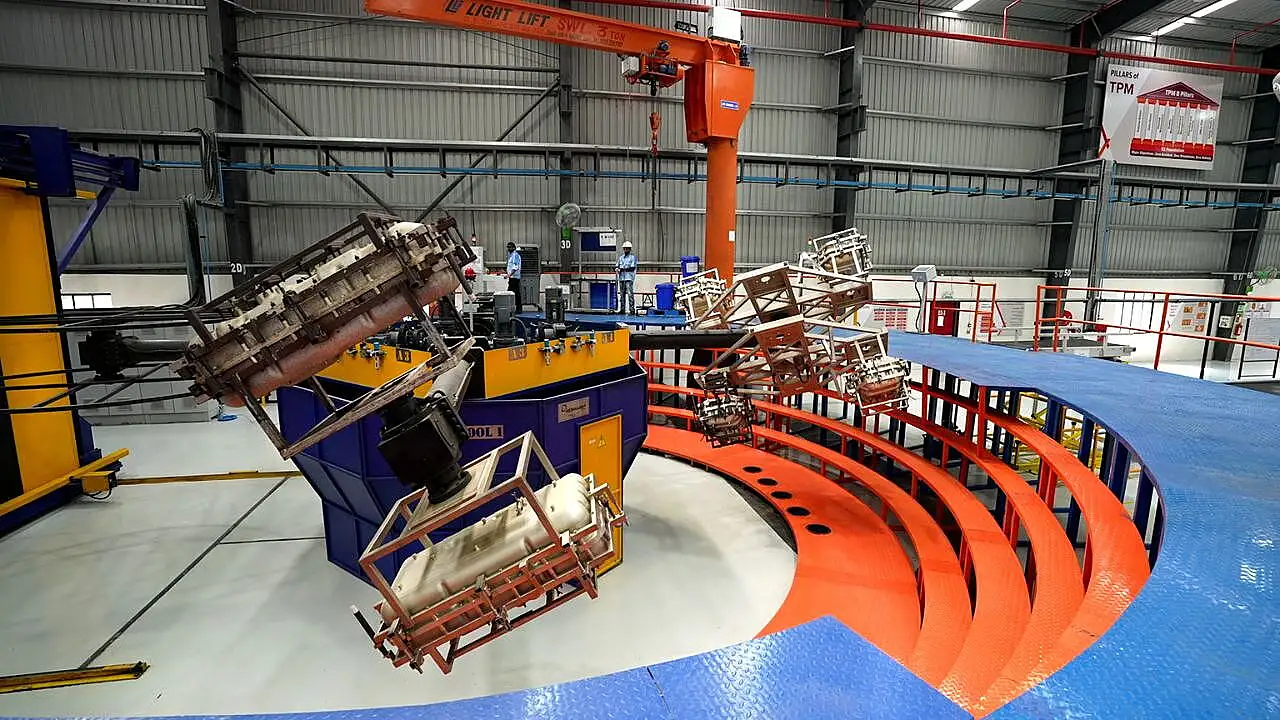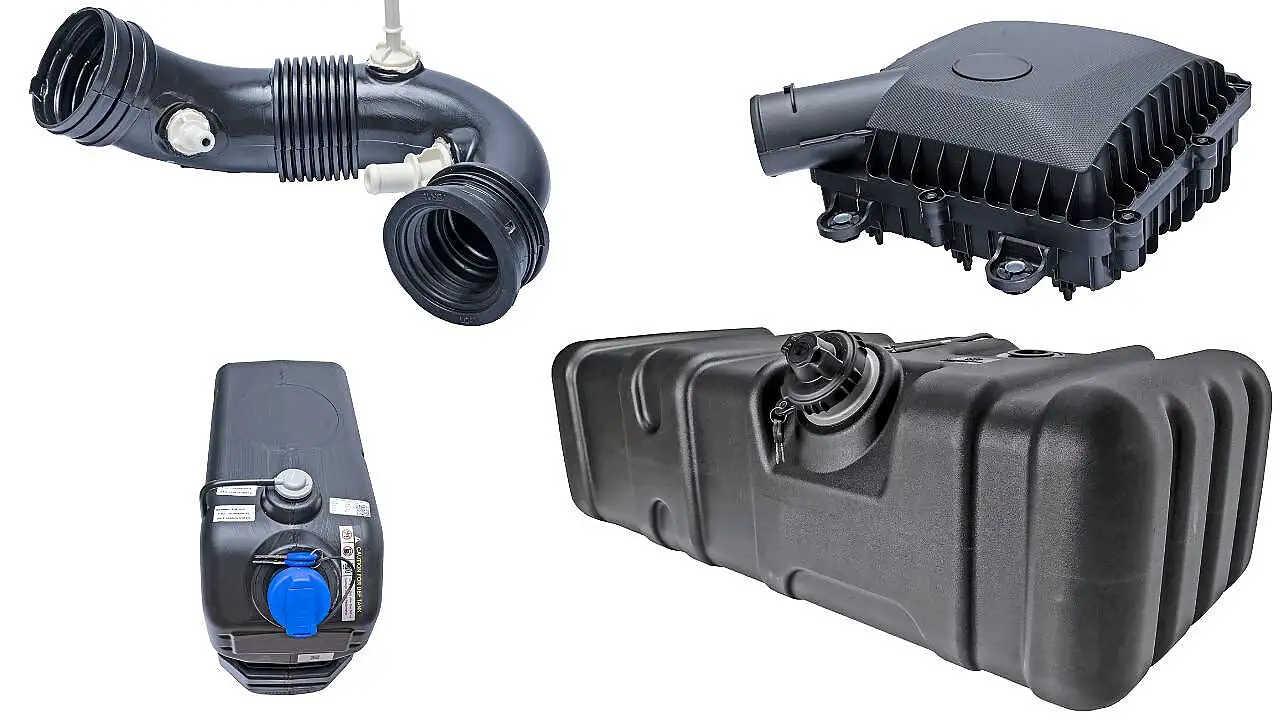
Lumax Cornaglia Auto Technologies (LCAT), a division of Lumax Auto Technologies Ltd (LATL) within the Lumax Group, is poised for substantial business growth. The company aims to expand its current product range, target new clientele both domestic and international markets, and intensify its offerings in the aftermarket.
At present LCAT caters to several customers including Tata Motors, Skoda Volkswagen India, Toyota India & Indonesia, Mahindra, Stellantis, MG Motors, SEAT, Skoda Czech, and VW Poland.
Vikas Marwah, CEO of LATL, is gung-ho about the potential of the new facility in Pune, inaugurated last February. He emphasised its strategic positioning to meet customer demands, citing the significant trend towards lightweighting in plastics, which has effectively substituted rubber and metal in various product sectors. Moreover, he underscored the sustainability benefits of employing advanced plastics, making it a sensible choice from an environmental standpoint as well.
Lumax Group's expertise lies in advanced plastics, with a strong focus on its polymer division. LCAT has emerged as a key player with its new plant equipped with a comprehensive range of plastic moulding technologies, including injection moulding, 2D & 3D blow moulding, and rotational moulding – a cutting-edge technology enabling mass customisation while producing unique parts even in low volumes. 'This allows us to provide comprehensive support to customers, ranging from air filter systems to air intake systems and fuel/AdBlue tanks, positioning us as a system supplier,' he noted. 'While our competitors may focus on one or two areas, our capability spans across multiple segments. This horizontal deployment of technologies offers a distinct advantage to OEMs operating in various vehicle segments. Our ramp-up phase has just begun,' he added.
New Opportunities
Impending CAFÉ norms drive numerous OEMs consider partnering with LCAT instead of developing these technologies in-house, alleviating the burden of backward integration. In addressing customer needs concerning volume, value, and service, being a local partner with a joint venture backed by an expert multinational company – Cornaglia - becomes a more strategic choice.
Furthermore, 'we have developed a degassing tank for the battery cooling liquid system of EVs and hybrids. We are on the verge of starting production for OEM very soon,' he elaborated.
Meanwhile, back in Italy, Cornaglia is expanding its scope to include core air filter and internal cabin filter technologies, presenting new opportunities for LCAT to venture into these segments.

Yet another avenue of opportunity identified by LCAT is the sender unit (for dozing the required urea level), an integral component in fuel and urea tanks. Typically, these units, sourced from multinational corporations (MNCs), are equipped with sensors to regulate urea flow. Currently, LCAT manufactures the shell and housing, which constitute approximately 40% of the total system cost. However, the company is now in the process of developing complete sender units to offer its customers, aiming to capture the remaining 60% of the system cost. It may be noted that LCAT has already made strides in managing the catalytic converter reduction for two-wheelers.
Adjacent Areas
Lumax, with 11 joint ventures, nine of which fall under LATL, strategically categorises them across lighting, electronics, moulding, mechatronics, and fabrication verticals. When questioned about potential challenges such as cannibalisation or competing products, Marwah stated, 'We do not foresee any challenges, as we have classified them strategically.' The company views these ventures as complementary, particularly in processes like moulding, especially for lighting. LCAT approaches customers as a system integrator, ultimately evolving into a system supplier.
Would LCAT face challenges due to its focus on ICE-related products? Dismissing concerns, Marwah highlighted the longevity of air intake and emission systems in ICE vehicles, estimating a strong demand for over a decade. He emphasised the company’s proactive approach to diversifying into products like degassing tanks and cabin filters, alongside venturing into the aftermarket segment. He stressed the company’s unique value proposition, which sets it apart and mitigates the risk of counterfeiting.
'We've been exploring opportunities in the electronics and sensor space, where connectivity is becoming increasingly crucial. Lumax is dedicated to niche technologies and markets, aiming to carve out a unique position in the industry. Our objective is to operate in segments where we face limited competition, ideally not more than two or three competitors in the country. Currently, four of our product lines rank among the top two in the domestic market. Our focus now is on elevating the remaining product lines to achieve similar success,' Marwah noted.

Cornaglia's Readiness
Discussing Cornaglia's readiness to adapt to the rapid evolution of powertrains and diverse fuels globally, Pier Antonio Cornaglia, Group Sales & Marketing Director, Cornaglia Group emphasised the company's strategic foresight. About four years ago, the Turin-headquartered company made significant investments in technology aligned with its core expertise in metal stamping, specifically targeting the emerging market for EV battery cooling systems. This proactive approach led to the establishment of a new plant in Poland, strategically positioned to assist vehicle manufacturers in meeting stringent European regulations aiming to phase out ICE vehicles by 2045.
Addressing the company's technological offerings for hydrogen engines, he highlighted its existing capabilities in producing similar systems. The primary distinction lies in filtration requirements due to the unique propulsion system of hydrogen engines. Currently, these systems are being manufactured in small volumes. Through their joint venture with LATL, Cornaglia plans to transfer this technology to India, tailoring it to meet the specific needs of clients in the region.
Regarding the US market, he pointed out the current flexibility, as the Government has not imposed any strict deadlines for phasing out ICE vehicles. However, vehicle manufacturers in the country are actively exploring hydrogen-powered vehicles. The global company has already supplied special filtration systems for these OEMs in limited quantities, demonstrating its commitment to supporting emerging technologies in the automotive industry.
Also Read:
Lumax Auto Technologies’ Aftermarket Division Partners With Bluechem Group